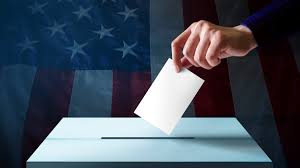Democratic voters comprise a multiracial but predominantly white group of college graduates and a larger group of non-college voters. The non-college share of the Democratic coalition is split about 50:50 between white (of which non-college whites are such a large share of the American population that they accounted for fully one-third of Joe Biden’s voters, despite voting overwhelmingly for Trump) and non-white individuals. It is overall much less liberal on a range of issues, especially social and cultural ones.
And this divide has important implications for Democratic Party politics. This working-class wing provides the majority of the votes, but the college grad wing provides essentially all of the staff, including in the White House and on Capitol Hill. But also in the agencies, at the Super PACs, at party-aligned nonprofits. College graduates also dominate the media, not just in the sense that the media is made by college graduates, but in that media made for college graduates is considered prestigious and highbrow in a way that local TV news or the Joe Rogan Experience is not.
That is Matt Yglesias in Slow Boring.
It would be easy to say “the activist wing of the party is ignorant of these facts.” But I don’t think that’s right. A lot of party elites recognize that the median democrat (let alone the median voter) doesn’t share their views. They don’t overestimate how much others think like them by too much. And they are strategic and mercenary enough to try to carry them along. Because they want to win elections. This strikes me as a good description of most Presidential candidates and near-candidates, including Biden and Clinton and Sanders.
The average person, however, doesn’t have someone reminding them every 15 minutes that they have to win the next election. So it’s easy to lose your theory of mind, and start to think other members of your party think and feel as you do. This projection bias is a pretty normal human thing to do.
I have to wonder if this bias is more common than before—a product of our real life bubbles and social media streams. That’s also the easy and alarmist thing to say. But it might be true. Later in the piece Yglesias writes of the survey data:
While cultural issues are the primary driver of the degree divide, more educated people are just more ideological and more “consistent” than working-class people. They know the right answer to the labor union question, so they give it more consistently.
Ideological consistency isn’t quite the same thing as projection bias, but it’s easy to imagine they reinforce one another.
Overall, this makes me think Democrats have gotten (or will get) a little worse at winning elections.


2 Responses
You are exactly correct about projection bias intensifying due to bifurcation and concentration of social / internet bubbles.
Another perspective of this issue in Politico, Ian Ward 10 Sep 2021 https://www.politico.com/news/magazine/2021/10/09/david-shor-democrats-privileged-college-kid-problem-514992
Same thing intensifying in Australia over past 10+ years. Big factional divides within “left” party (two factions in “left”: unions vs college elites). Except the “left” refuse to admit that we have “elites” in Australia on that side of government (theoretically our college system is not “elitist”, so “elitism” here is more often based on social status than material wealth). That division and infighting means the “left” recently has not achieved more than about 30 something percent of vote (not good for democracy in long run). Also undercurrents of resentment are rife within those “left elites”, whose choice of employment based on morals means quite low income (especially relative to high education and social status). The true cause of the resentment (the conflict between poor economic material reality versus high social status) is not at all recognised, but given the house price crisis it is a very material issue and means that cohort of “left elite” is very very angry. Given the true cause of the anger remains undiagnosed, they instead express their anger at the Voter Bogeymen whom they think are dumb and racist and don’t care about the environment, but in reality are just workers who previously voted for the working party but now cannot identify with that political group because that political group is focussed on morality preaching and routinely calls these voters “dumb, racist and environmental destroyers”. Preservation of dignity precludes voting for a party that belittles the voter. In comparison to the USA, worker protections in Australia are very good, so very few (if any) voters are faced with genuine risk to their working conditions based on the vote. The singular economic issue that all voters are overwhelmed by is the ongoing house price crisis (which neither party are willing to solve). Apologies for this rambling, most appalling paragraph I have ever written but not enough time to explain contemporary Australian politics.
Back to your point (and US context), see also Mike Makowsky’s blog posts 7 Feb 2022 https://economistwritingeveryday.com/2022/02/07/the-dangers-of-high-status-low-wage-jobs/
Thanks for your recent coverage on Russia / Putin, looking forward to your book.
PS one last comment: have you looked at the dynamics leading to the Spanish civil war and victory of nationalist Franko dictatorship? I could never understand how such a dictatorship could attain and hold power in a country of people who are primarily socialist, but since about 2015 I have begun to understand how it might happen. I think that historical case study is perhaps relevant to today. (apologies to both the Spanish and Historians for my very crude interpretation.)
IIn the old days when unions had more power, the union leaders mostly lacked college degrees, IIRC. That meant a George Meany and Walter Reuther had seats at the table when decisions were made. These days not only do the unions have much less power but more of their their leaders, I suspect, have college degrees. It can make a difference.